How Does a Gas Storage Hot Water System Work? If you're a homeowner, chances are…
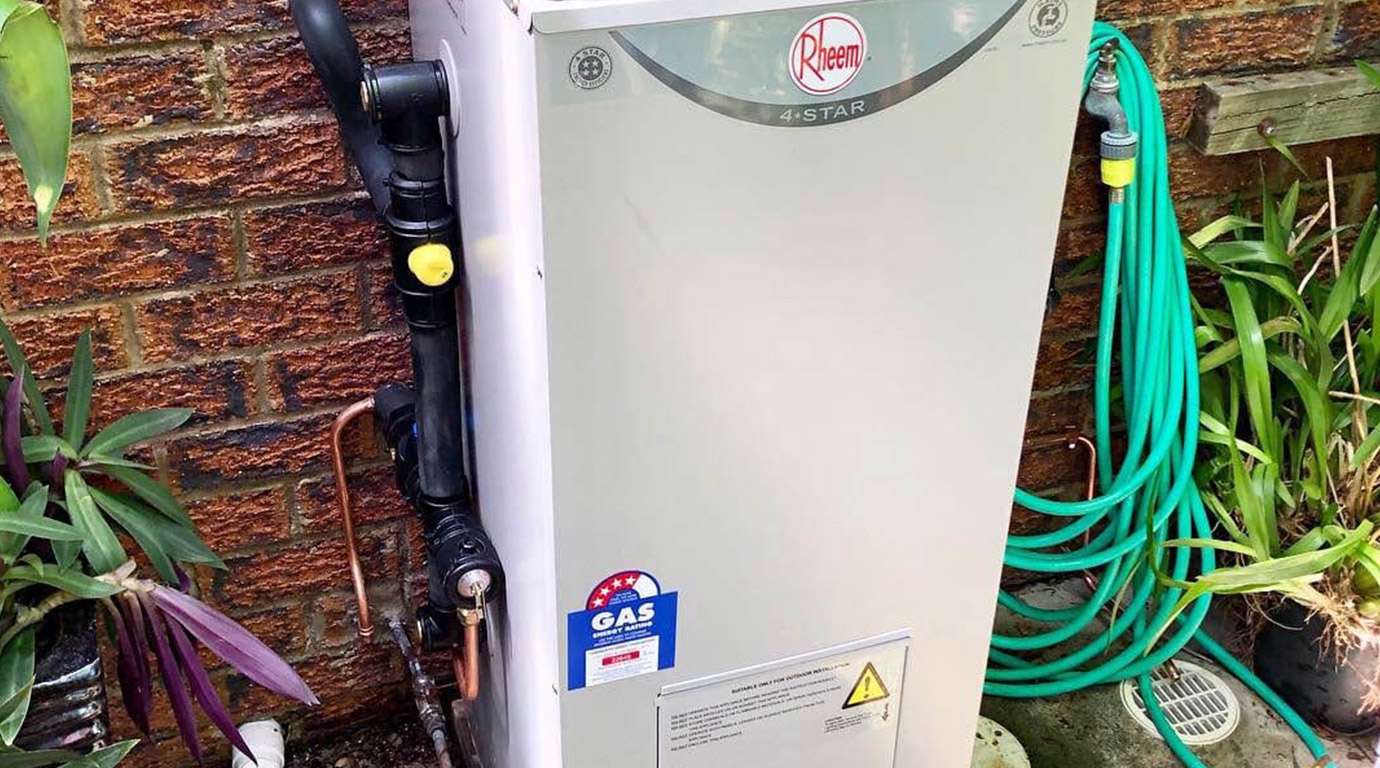
Gas vs Electric Instant Hot Water Systems: Which One is Right for Your Home?
As a homeowner in Australia, choosing the right hot water system is a crucial decision that can significantly impact your daily comfort and energy costs. Among the various options available, two popular choices are gas and electric instant hot water systems. Both offer distinct advantages and are suitable for different households depending on their specific needs and preferences. In this comprehensive guide, we’ll take a closer look at Gas vs Electric Instant Hot Water Systems, exploring their features, benefits, and factors to consider when making your decision. Let’s dive in and find out which one is the best fit for your home.
Contents:
- Understanding Gas Instant Hot Water Systems
- The Benefits of Gas Instant Hot Water Systems
- The Downside of Gas Instant Hot Water Systems
- Understanding Electric Instant Hot Water Systems
- The Benefits of Electric Instant Hot Water Systems
- The Downside of Electric Instant Hot Water Systems
- Factors to Consider When it Comes to Gas vs Electric Instant Hot Water Systems
- The Right System For Your Home
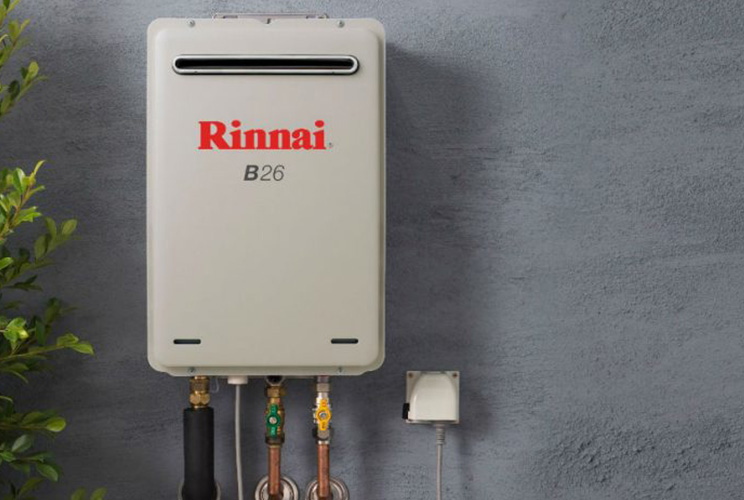
Understanding Gas Instant Hot Water Systems
The Basics of Gas Instant Hot Water Systems
Gas instant hot water systems, also known as tankless or continuous flow systems, heat water on-demand as it flows through the unit. They do not store hot water in a tank, eliminating the need for constant heating and resulting in energy savings. Instead, when you turn on a hot water tap, the system’s gas burner ignites, quickly heating the water as it passes through the heat exchanger. This allows for an uninterrupted and continuous supply of hot water.
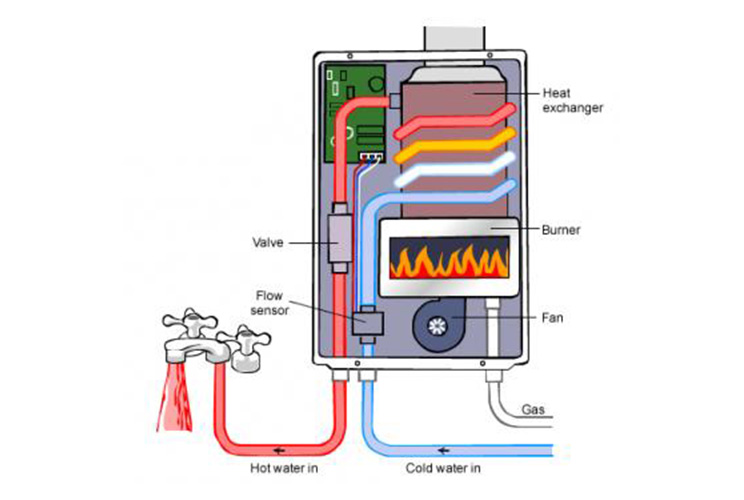
Hot Water Systems account for around 18% of energy use in Victorian Households. – Energy.vic.gov.au
The Components of Gas Instant Hot Water Systems
Gas instant hot water systems consist of several key components:
- Gas Burner: The gas burner is the heart of the system, responsible for heating the water as it flows through the heat exchanger.
- Heat Exchanger: The heat exchanger is a vital element that transfers the heat from the gas burner to the water, raising its temperature as it passes through.
- Flow Sensor: The flow sensor detects when a hot water tap is turned on and triggers the gas burner to start heating the water.
- Water Inlet and Outlet: These are the pipes that carry cold water into the system and deliver hot water to your taps.
- Temperature Control: Gas instant hot water systems come with temperature controls that allow you to set your desired hot water temperature.
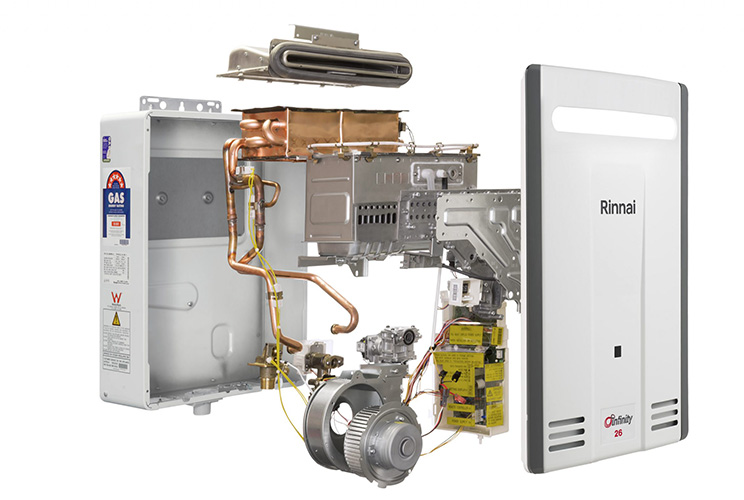
The Benefits of Gas Instant Hot Water Systems
Energy Efficiency: Gas instant hot water systems are highly energy-efficient because they only heat water when you need it. There is no standby heat loss, which occurs in traditional storage hot water systems. As a result, they can help you save on energy bills in the long run.
Unlimited Hot Water: With a gas instant hot water system, you’ll never run out of hot water. The system provides a continuous flow of hot water, making it ideal for households with high hot water demands.
Compact and Space-Saving: Gas instant hot water systems are compact and wall-mounted, freeing up valuable floor space in your home compared to bulky hot water storage tanks.
Long Lifespan: Gas instant hot water systems generally have a longer lifespan than traditional storage systems, lasting up to 20 years with proper maintenance.
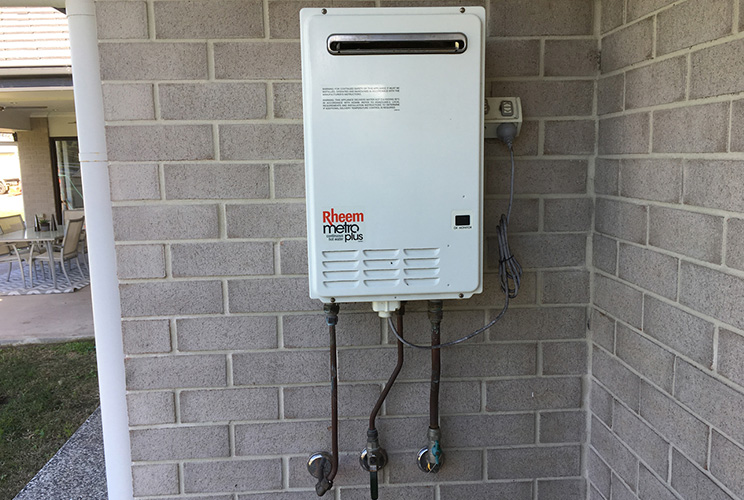
The Downside of Gas Instant Hot Water Systems
While gas instant hot water systems offer many benefits, they are not without their downsides. It’s essential to consider these aspects before making a decision for your home.
Higher Upfront Costs: One of the primary drawbacks of gas instant hot water systems is their higher upfront cost compared to electric systems. The initial investment includes the cost of the unit, installation, and potentially additional ventilation requirements. While gas systems can provide long-term cost savings through energy efficiency, the higher initial expenses may be a deterrent for some homeowners.
Limited Installation Flexibility: Gas instant hot water systems require proper ventilation to safely release combustion byproducts. This means that they must be installed in well-ventilated areas or have appropriate flues or chimneys. In some homes, finding a suitable location for the unit and accommodating ventilation requirements can be challenging and may limit installation options.
Maintenance Requirements: Gas instant hot water systems require regular maintenance to ensure optimal performance and safety. The combustion components, such as burners and gas valves, need periodic cleaning and inspection to prevent issues and ensure efficient operation. Regular maintenance may involve additional costs, and homeowners must stay on top of scheduling maintenance visits to keep the system running smoothly.
Carbon Monoxide Risk: Although gas hot water systems are designed with safety features, there is always a slight risk of carbon monoxide (CO) emissions if the system malfunctions or is not adequately maintained. Carbon monoxide is a colorless and odorless gas that can be harmful or even deadly in high concentrations. To mitigate this risk, it’s crucial to install CO detectors in your home and have a qualified technician perform regular maintenance on the gas system.
Environmental Impact: While gas is considered a cleaner fuel compared to some other energy sources, it still contributes to greenhouse gas emissions when burned. As society moves towards more sustainable and environmentally friendly practices, some homeowners may be concerned about the carbon footprint of gas hot water systems.
Limited Hot Water Supply during Power Outages: Although gas instant hot water systems do not rely on electricity to heat water, they may require an electrical connection for some of their components, such as electronic ignition. During power outages, the electrical components may not function, potentially limiting the hot water supply.
Noise: Gas instant hot water systems can produce some noise during operation. The sound of the gas burner igniting and the flow of water through the unit may be audible, especially if the unit is installed near living spaces or bedrooms.
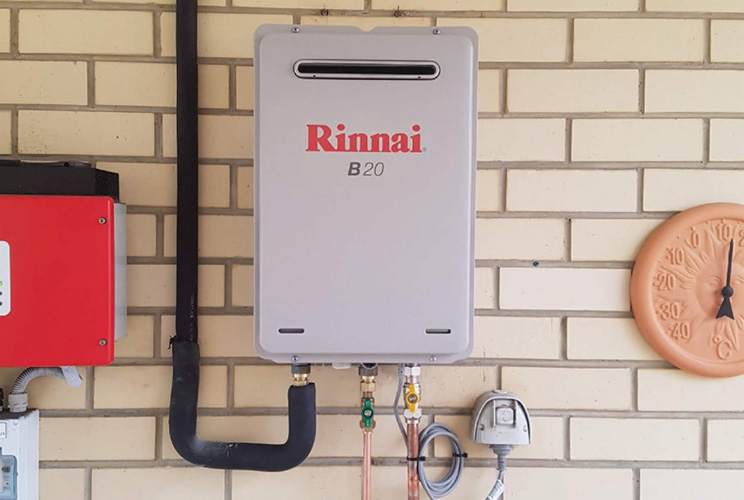
Sustainability Victoria has calculated the typical running costs and greenhouse gas emissions for the various types of hot water systems – Choice.com.au
Understanding Electric Instant Hot Water Systems
The Basics of Electric Instant Hot Water Systems
Electric instant hot water systems operate similarly to gas systems but use an electric heating element instead of a gas burner to heat the water. When you turn on a hot water tap, the electric element heats the water as it passes through the unit, delivering hot water on-demand.
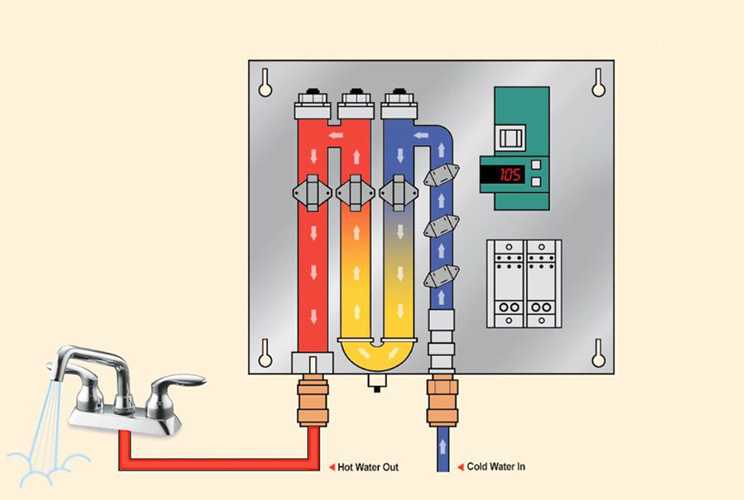
The Components of Electric Instant Hot Water Systems
Electric instant hot water systems share similar components with gas systems, but instead of a gas burner and heat exchanger, they have an electric heating element.
- Electric Heating Element: The electric heating element is the key component responsible for heating the water as it flows through the system.
- Flow Sensor: Like gas systems, electric systems also have a flow sensor that detects water flow and activates the heating element.
- Water Inlet and Outlet: These pipes carry cold water into the system and deliver heated water to your taps.
- Temperature Control: Electric instant hot water systems come with temperature controls to adjust the hot water temperature to your preference.
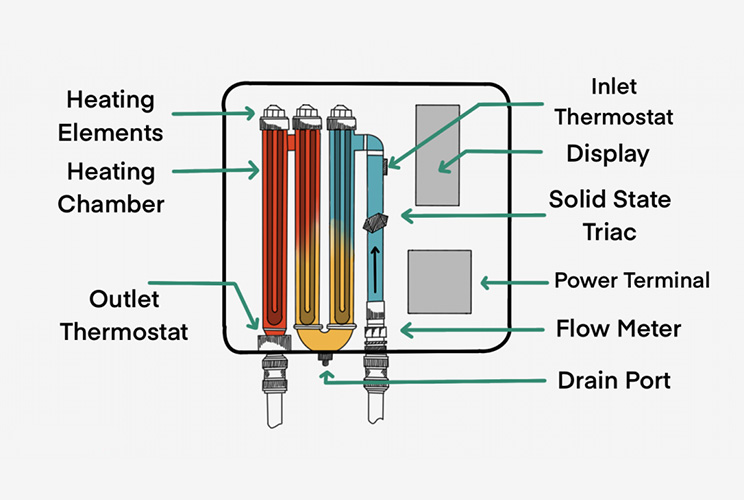
The Benefits of Electric Instant Hot Water Systems
Easy Installation: Electric instant hot water systems are relatively easy to install, and they do not require venting like gas systems, which can be advantageous in certain home setups.
Lower Upfront Costs: Electric systems tend to have lower upfront costs compared to gas systems, making them a more budget-friendly option for some homeowners.
No Gas Connection Required: If your property does not have a natural gas connection, an electric instant hot water system provides a convenient alternative.
Quieter Operation: Electric systems are generally quieter during operation compared to gas systems.
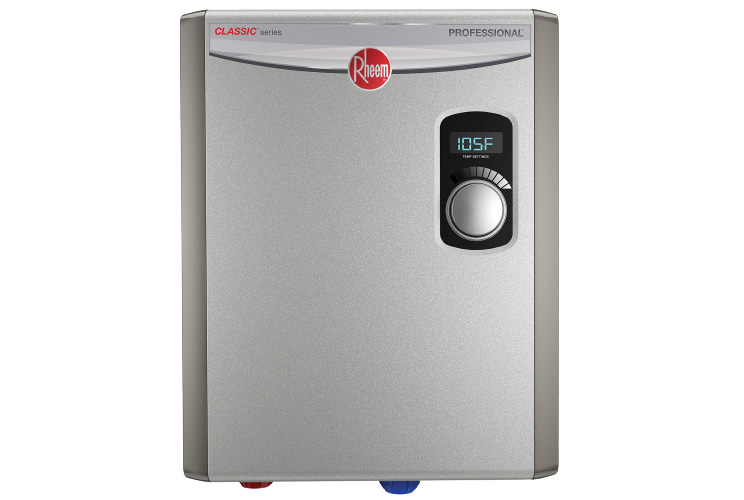
Apply for a rebate of 50% off up to $1000 towards eligible hot water systems – Service.vic.gov.au
The Downside of Electric Instant Hot Water Systems
While electric instant hot water systems offer several benefits, they also come with some downsides that are essential to consider before making your decision.
Limited Hot Water Output: One of the main drawbacks of electric instant hot water systems is their limited hot water output compared to gas systems. Electric systems may struggle to keep up with high hot water demands, especially in larger households with multiple hot water taps running simultaneously. As a result, you may experience a decrease in water pressure and a drop in water temperature if you exceed the system’s maximum flow rate.
Higher Operating Costs: Despite their lower upfront costs, electric instant hot water systems can have higher operating costs in the long run, particularly in regions with expensive electricity rates. The continuous heating of water on-demand requires a significant amount of electrical energy, which can lead to higher utility bills over time. Additionally, electric systems may be less energy-efficient than gas systems, resulting in more significant energy consumption.
Potential Delay in Hot Water Delivery: Electric instant hot water systems can have a slight delay in delivering hot water to your taps. Unlike gas systems that provide hot water almost instantly, electric systems require a few seconds to heat the water as it flows through the unit. While the delay may not be significant, it can be noticeable if you are used to immediate hot water delivery.
Dependence on Electricity: Electric hot water systems are entirely dependent on a reliable electricity supply. In the event of a power outage or electrical failure, you may be left without access to hot water until power is restored. This can be a significant inconvenience, especially during emergencies or in areas prone to frequent power outages.
Limited Installation Flexibility: Electric instant hot water systems may have limitations in installation flexibility. The availability of suitable electrical connections and electrical capacity in your home can impact where the system can be installed. This may restrict your options for locating the unit in the most convenient or space-saving areas of your home.
Lifespan and Maintenance: Electric instant hot water systems may have a slightly shorter lifespan compared to gas systems. The heating elements in electric systems can experience wear and tear over time, requiring periodic replacement. Additionally, mineral deposits can build up inside the unit, leading to reduced efficiency and potential maintenance needs.
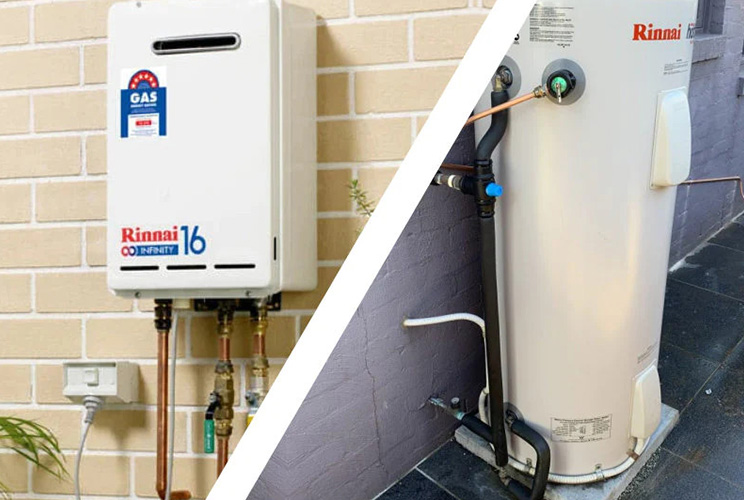
Factors to Consider When it Comes to Gas vs Electric Instant Hot Water Systems
Energy Costs: Compare the costs of gas and electricity in your area to determine which option is more cost-effective in the long run. Gas prices can fluctuate based on market conditions, while electricity rates may vary depending on your energy provider.
Hot Water Demand: Consider your household’s hot water usage patterns. If you have a large family or high hot water demands, a gas instant hot water system may be more suitable for providing a continuous supply of hot water.
Installation Costs: Take into account the installation costs, including any necessary modifications to accommodate gas or electrical connections. Factor in the upfront costs, including the unit, installation, and any additional components.
Available Space: Assess the available space in your home for the hot water system. Gas systems are typically wall-mounted and require ventilation, while electric systems may be installed more flexibly.
Long-Term Savings: Consider the long-term energy savings and the expected lifespan of each system. While gas systems can offer higher energy efficiency, electric systems may have lower upfront costs.
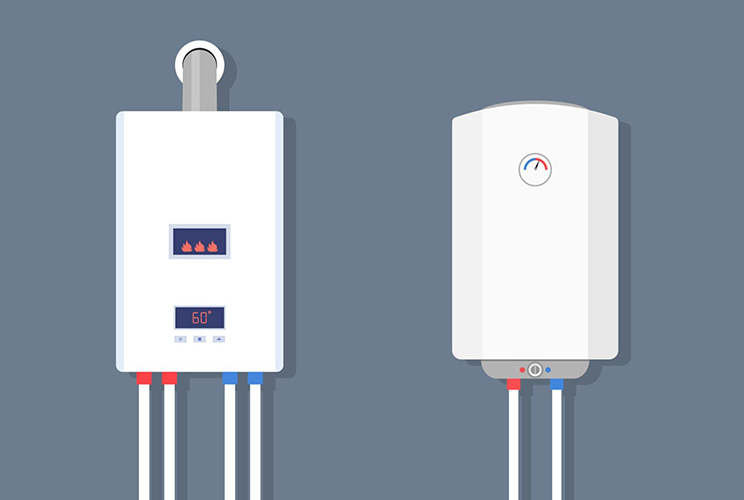
The Right System For Your Home
When choosing Gas vs Electric Instant Hot Water Systems, it’s essential to evaluate your household’s specific needs, energy costs, and installation considerations. Both systems offer continuous hot water supply, energy efficiency, and space-saving benefits. Ultimately, the decision boils down to personal preferences and budgetary constraints.
Before making your final choice, consult with a qualified plumber or hot water system specialist to assess your home’s suitability for either gas or electric installation. They can help you weigh the pros and cons and guide you towards the best option for your unique requirements.
Remember, investing in the right hot water system can provide years of comfort and convenience for your home, so make an informed decision regarding Gas vs Electric Instant Hot Water Systems, and choose one that aligns with your family’s needs and values. Happy hot water system shopping!

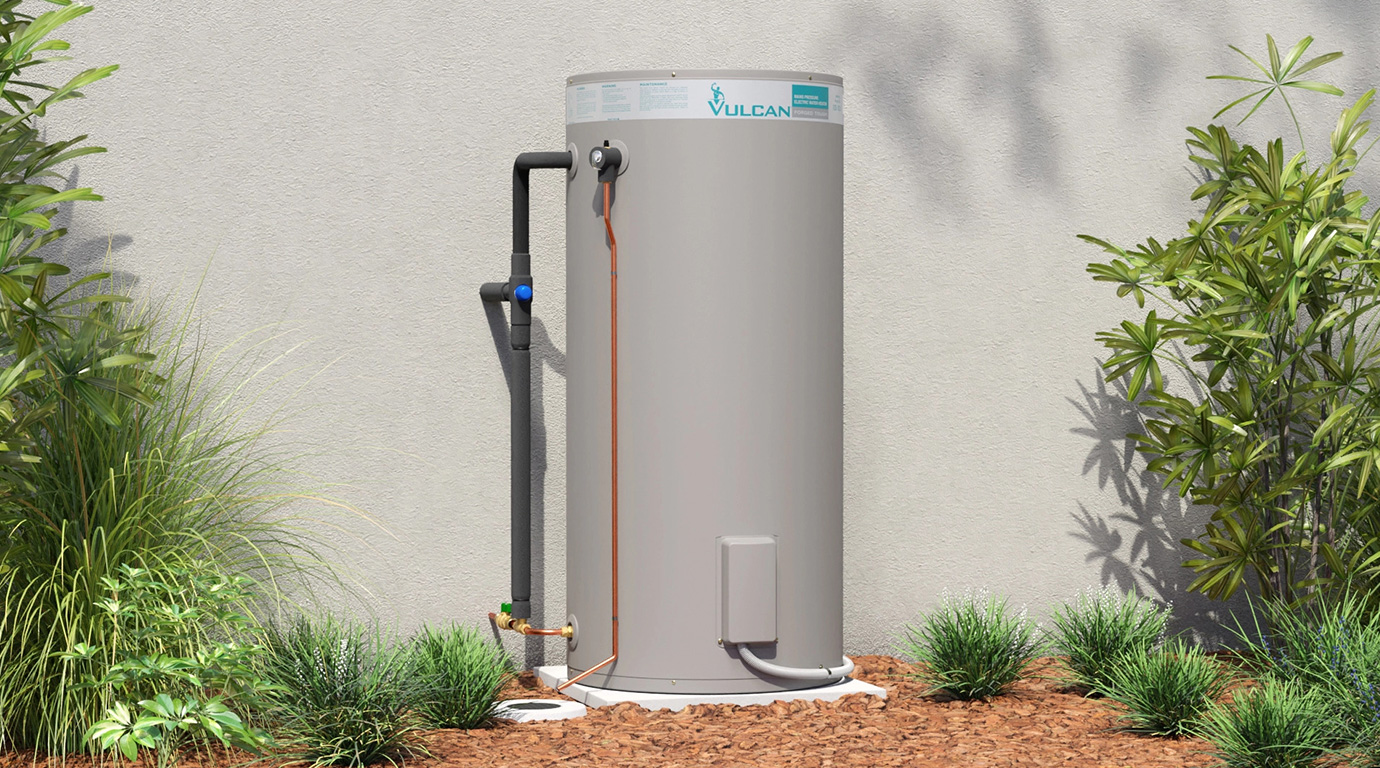
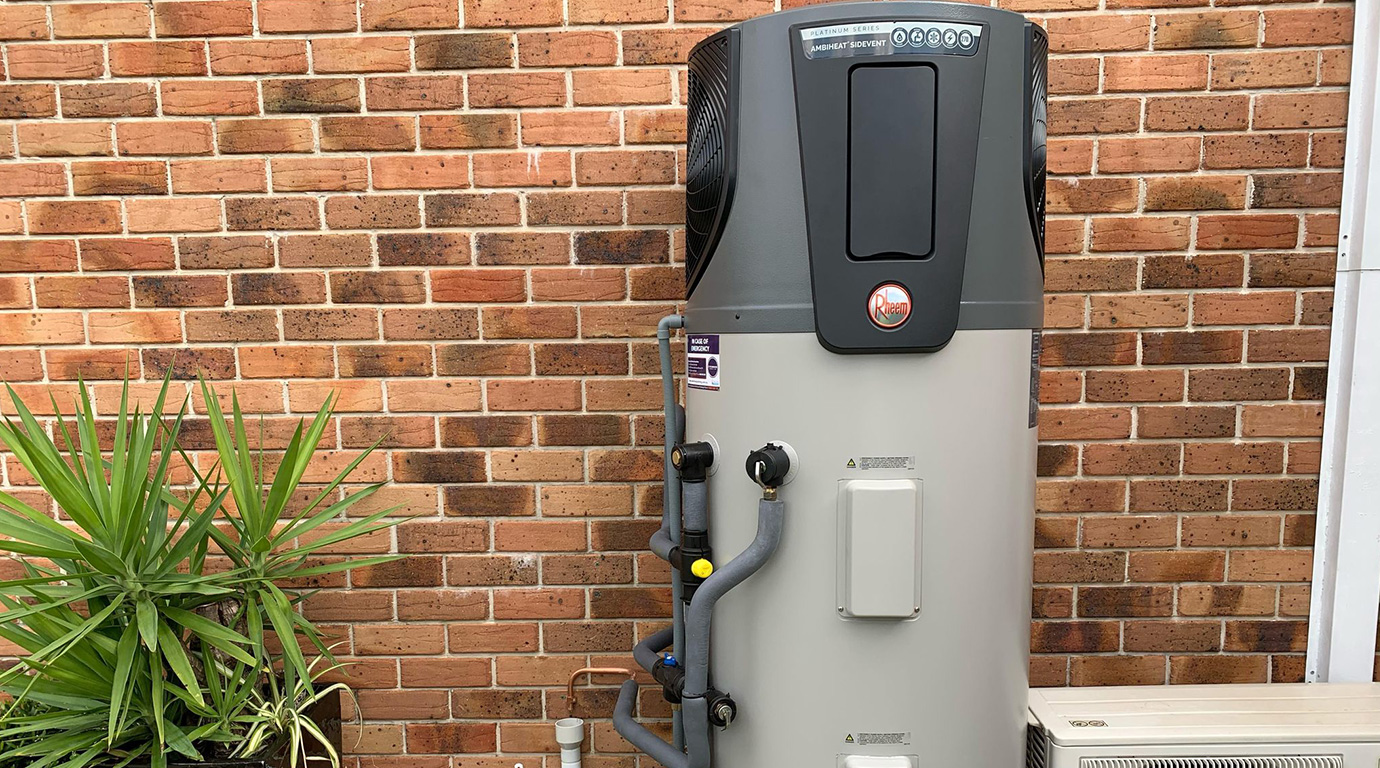
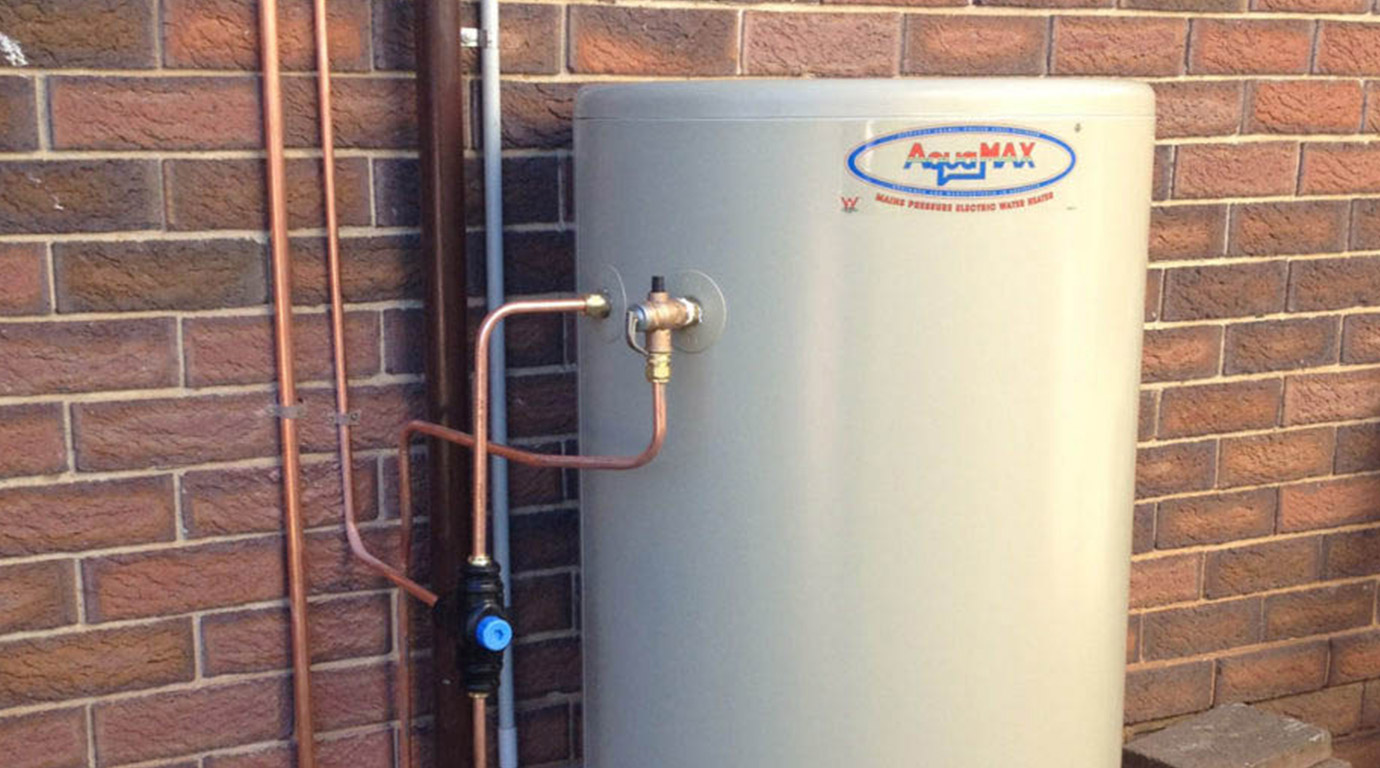
This Post Has 0 Comments